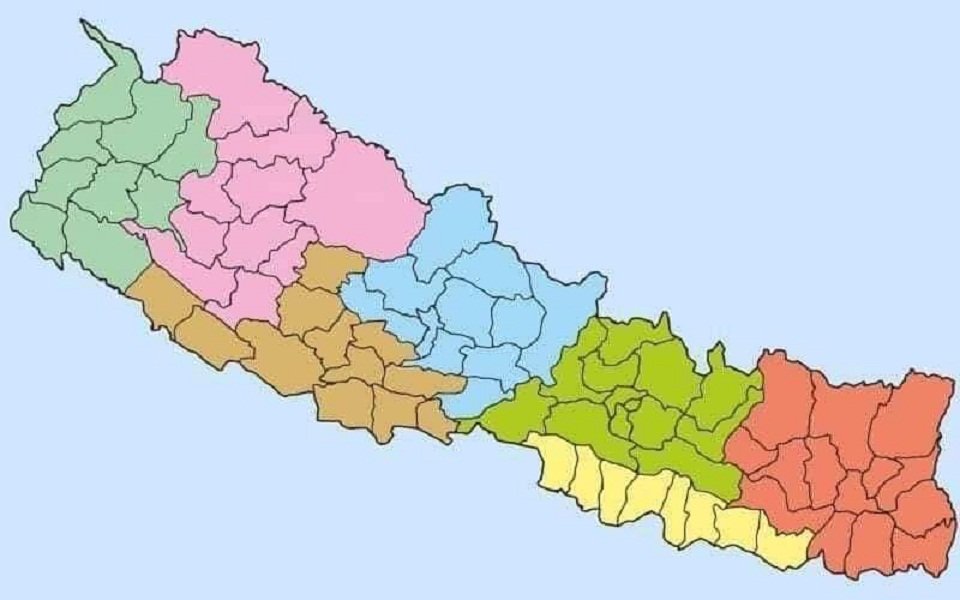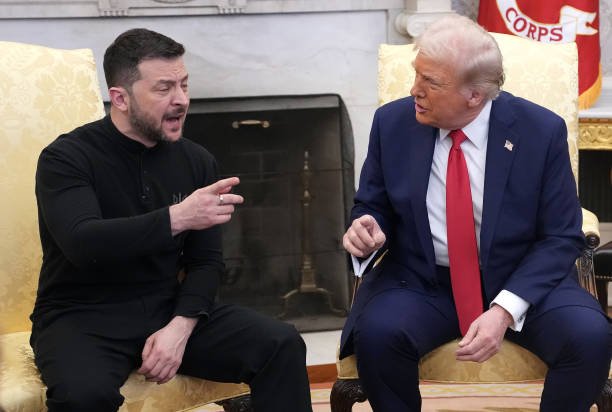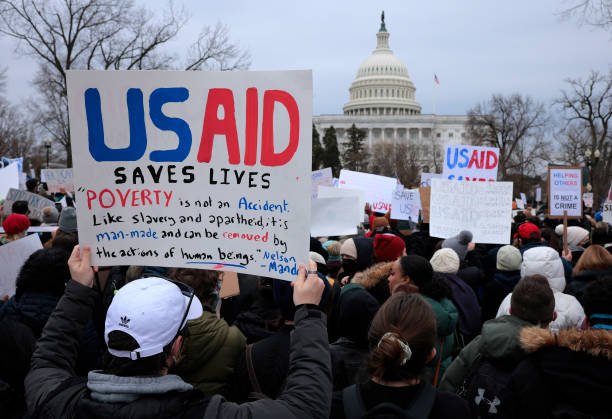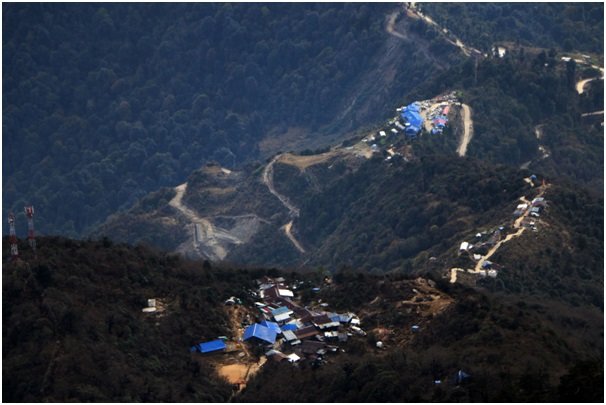Harnessing the Power of Multipolarity: How Nepal Can Benefit From a Shift in Foreign Policy

Multipolarity, defined as “a world order with more than two poles of power”, is an increasingly important concept in foreign policy circles. As the political landscape evolves, countries must adapt their strategies to remain competitive in an ever-changing global environment. Nepal is no exception; in order to protect its interests, the country must pay attention to the shifting dynamics of global power and consider how to shape its foreign policy. This blog article will explore the concept of multipolarity, its benefits, the role of great powers in a multipolar world, how Nepal can pursue a multipolar foreign policy, and how the country can benefit from such a shift.
Introduction to Multipolarity
The concept of multipolarity is not a new one; it has been around since the end of the Cold War. However, it has become increasingly relevant in recent years, with the rise of new major powers such as China and India and the decline of traditional Western hegemony. In a multipolar world, power is no longer concentrated in the hands of a few states, but is instead distributed among a variety of different actors. This has implications for international relations, and countries must adapt their strategies accordingly.
At its most basic, multipolarity refers to the number of centers of power in the international system. In the past, the world was dominated by two major powers (the United States and the Soviet Union), and this created a bipolar system. However, with the emergence of new powers, the number of major players has increased, resulting in a multipolar world. This has had a profound effect on the international system, as countries must now compete for influence and power in a much more complex environment.
Benefits of Multipolarity
The emergence of multipolarity has a number of benefits for the international system. One of the most important is the increased competition among states, which leads to more efficient and effective policies. In a multipolar world, states must strive to stay ahead of the competition in order to remain powerful. This creates an environment where countries actively seek out new and better policies, as well as innovative solutions to global problems.
Furthermore, multipolarity also allows for more diverse forms of cooperation. In a bipolar world, two major powers often dominate the international system and there is little room for collaboration among other countries. However, in a multipolar world, there are more opportunities for states to cooperate, leading to increased stability and more effective global governance.
Finally, multipolarity also allows for more creative solutions to global challenges. In a bipolar world, two major powers often dictate the terms of global policy, leaving little room for innovation. However, in a multipolar world, a variety of different actors can contribute to global policymaking, leading to more effective and creative solutions.
The Role of Great Powers in a Multipolar World
The emergence of multipolarity has had a significant impact on the role of great powers in the international system. In a bipolar world, great powers often act as a counterbalance to one another, creating a stable balance of power. However, in a multipolar world, great powers must compete with one another for influence and power. This has led to the emergence of new forms of coalition and alliance arrangements among great powers, as each seeks to maximize its influence in the international system.
Great powers also play an important role in the maintenance of global stability. In a multipolar world, great powers are often the primary actors in the management of global security issues. They are responsible for ensuring that the international system remains stable and that conflicts are resolved peacefully. As such, great powers play a crucial role in the maintenance of international peace and security.
How Nepal Can Prepare To Pursue a Multipolar Foreign Policy
Nepal is well-positioned to take advantage of the opportunities presented by multipolarity. In order to do so, the country must develop relationships with a diverse range of major powers and regional actors. This will allow Nepal to benefit from the increased competition among states, as well as the opportunities for cooperation presented by a multipolar world.
In the current global landscape, there are several examples of multipolar countries that have successfully established alliances with major powers and regional actors around the world. For instance, India has cultivated relationships with both China and the United States, leveraging its strategic location to become a hub for regional trade and cooperation. Similarly, Brazil has developed partnerships with a range of countries in Europe, Asia, and the Americas, and has played a key role in regional organizations such as the Union of South American Nations (UNASUR) and the Community of Latin American and Caribbean States (CELAC).
Furthermore, Nepal should also seek to foster economic and cultural ties with countries outside the traditional Western sphere of influence. This could include developing relationships with Russia, China, India, and other major powers in the region. Doing so would allow Nepal to become a hub for regional trade and cooperation, and would open up new opportunities for the country’s economic growth.
The technical aspect to it requires a few sincere assessment and discussions Some of the baseline to discuss the framework for Nepal's pursuit of a multipolar foreign policy is discussed below:
The potential impact on Nepal's relations with its neighbors:
A discussion of how a multipolar foreign policy might affect Nepal's relations with other countries in the region, including both major powers and regional actors. This could include an analysis of the potential for increased cooperation or competition, as well as any implications for regional stability and security.
The role of economic considerations:
An analysis of the economic factors that might influence Nepal's decision to pursue a multipolar foreign policy, including access to diverse sources of investment, trade, and development assistance. This could also include a discussion of the potential economic benefits and risks of such a policy.
The potential impact on Nepal's domestic politics:
A discussion of how a multipolar foreign policy might affect domestic politics in Nepal, including any potential implications for political parties, civil society groups, or other stakeholders. This could include an analysis of the potential for the policy to create domestic divisions or to be used as a tool for political gain.
The potential impact on Nepal's security:
A discussion of how a multipolar foreign policy might affect Nepal's security, including any potential implications for military alliances, defense partnerships, or peacekeeping operations. This could also include an analysis of the potential for a multipolar foreign policy to increase or decrease Nepal's vulnerability to external threats.
The role of cultural and ideological considerations:
An analysis of the cultural and ideological factors that might influence Nepal's decision to pursue a multipolar foreign policy, including any potential implications for Nepal's identity and values. This could include a discussion of the potential for a multipolar foreign policy to promote or undermine Nepal's cultural and ideological interests.
The potential impact on Nepal's long-term strategic interests:
A discussion of how a multipolar foreign policy might affect Nepal's long-term strategic interests, including any potential implications for Nepal's role in the international community and its position in the global order. This could include an analysis of the potential for a multipolar foreign policy to enhance or diminish Nepal's influence and prestige on the global stage.
The role of international institutions:
A discussion of the role that international institutions such as the United Nations, the World Trade Organization, and regional organizations might play in Nepal's pursuit of a multipolar foreign policy. This could include an analysis of the potential for international institutions to facilitate or hinder Nepal's efforts to develop relationships with major powers and regional actors, as well as any implications for Nepal's participation in global governance.
The role of civil society and the media:
A discussion of the role that civil society groups and the media might play in Nepal's pursuit of a multipolar foreign policy. This could include an analysis of the potential for these actors to support or oppose a multipolar approach, as well as any implications for public opinion and domestic politics.
Why It Is Relevant Now
The concept of multipolarity is more relevant now than ever before, as the world is undergoing a period of rapid geopolitical change. With the rise of new powers such as China and India, the traditional Western-dominated world order is being challenged. At the same time, the global economy is becoming more interconnected, creating new opportunities for economic growth and cooperation.
The relevance can be discussed under the following headings:
The changing global landscape:
The global landscape is constantly changing, and Nepal's foreign policy will need to adapt to these changes in order to best serve the country's interests. As major powers such as China and the United States become increasingly influential, Nepal may need to consider alternative approaches to foreign policy in order to remain autonomous and flexible.
The potential for economic gain:
A multipolar foreign policy could present Nepal with new economic opportunities, such as access to diverse sources of investment and trade. As Nepal looks to promote its economic development and prosperity, a multipolar approach may be an effective tool for achieving these goals.
The importance of regional stability:
A multipolar foreign policy could also contribute to regional stability by reducing the risk of major power rivalries and conflicts. By cultivating relationships with multiple major powers, Nepal could help to create a more cooperative and peaceful regional environment.
The potential for Nepal to become a mediator:
A multipolar foreign policy could allow Nepal to play a greater role in regional and global diplomacy, potentially positioning the country as a mediator or facilitator in conflicts or disputes. By developing relationships with multiple major powers and regional actors, Nepal could be in a unique position to bring parties together and help to resolve conflicts.
The importance of Nepal's sovereignty:
A multipolar foreign policy could also help to safeguard Nepal's sovereignty by reducing the risk of the country becoming overly reliant on any one major power. By diversifying its relationships, Nepal can maintain its autonomy and independence in decision-making.
The potential for Nepal to contribute to global governance:
A multipolar foreign policy could also allow Nepal to contribute more effectively to global governance by providing a diverse range of perspectives and experiences to international institutions and processes. By fostering relationships with multiple major powers and regional actors, Nepal could help to shape global norms and practices in a more multipolar, cooperative manner.
The importance of Nepal's cultural and ideological diversity:
Nepal is a diverse country with a rich cultural and ideological heritage. A multipolar foreign policy could allow Nepal to celebrate and promote this diversity on the global stage, potentially enhancing the country's reputation and standing in the international community.
The potential for Nepal to become a leader in regional and global issues:
A multipolar foreign policy could also allow Nepal to take a leadership role in regional and global issues, such as climate change, economic development, and human rights. By fostering relationships with multiple major powers and regional actors, Nepal could leverage its influence to promote positive change and cooperation on these issues.
The impact of global shifts:
The global landscape is constantly evolving, and Nepal's foreign policy will need to adapt to these shifts in order to best serve the country's interests. A multipolar foreign policy could allow Nepal to respond more effectively to changes such as the rise of new major powers, shifts in global economic patterns, and changing geopolitical dynamics.
The need for Nepal to catch up:
Nepal has been slower to develop than some of its neighbors, and a multipolar foreign policy could be an effective tool for helping the country catch up. By cultivating relationships with multiple major powers and regional actors, Nepal could access diverse sources of investment, trade, and development assistance, potentially driving economic growth and development.
How Nepal Can Benefit From a Multipolar World
Nepal can benefit from a multipolar world in a number of ways. First, the country can take advantage of the increased competition among states, as this can lead to more efficient and effective policies. By being aware of the changing dynamics of global power, Nepal can develop strategies to remain competitive in the global arena.
Second, Nepal can benefit from the increased opportunities for cooperation presented by multipolarity. By forming relationships with a variety of major powers and regional actors, the country can become a hub for regional trade and cooperation. This could open up new opportunities for economic growth and development, as well as increased security.
Third, Nepal can also benefit from the increased creativity and innovation that comes with multipolarity. By working with a variety of different actors, the country can develop more creative solutions to global challenges. This could lead to improved global governance and more effective policies.
Strategies for Implementing a Multipolar Foreign Policy
In order to successfully implement a multipolar foreign policy, Nepal must take a number of steps. Some of them are as follows:
● Develop a clear foreign policy vision that reflects Nepal's interests and values.
● Establish relationships with a diverse range of major powers, including both traditional Western powers and emerging powers such as China and India.
● Seek to utilize membership and vote privilege in international organizations such as the United Nations strategically, which can provide a forum for international cooperation and diplomacy.
● Consider making the most of membership in regional organizations such as the Association of Southeast Asian Nations (ASEAN) and the South Asian Association for Regional Cooperation (SAARC), which can facilitate regional cooperation and help Nepal to cultivate relationships with other countries in the region.
● Encourage economic and cultural exchanges with countries around the world, including both major powers and regional actors.
● Promote tourism and encourage foreign investment to help boost Nepal's economy.
● Establish cultural exchange programs to foster understanding and cooperation between Nepal and other countries.
● Use Nepal's multipolar foreign policy as an opportunity to advocate for issues such as economic development, regional stability, and human rights.
● Leverage Nepal's strategic location to become a hub for regional trade and cooperation.
● Consider negotiating bilateral agreements with major powers and regional actors on issues such as trade, investment, and security.
● Utilize Nepal's diplomatic corps to cultivate relationships and promote the country's interests on the global stage.
● Engage with civil society groups and the media to ensure that Nepal's foreign policy reflects the needs and concerns of the public.
● Work with other countries that are pursuing a multipolar foreign policy to promote a more cooperative and multipolar global order. This could involve collaborating on issues such as trade, investment, and regional stability, as well as advocating for a more inclusive and diverse international system.
● Explore opportunities for international development assistance, including both bilateral and multilateral programs.
● Utilize technology and digital diplomacy to enhance Nepal's foreign policy efforts and connect with the international community.
● Seek to become a mediator or facilitator in conflicts or disputes, using Nepal's relationships with multiple major powers and regional actors to bring parties together and promote cooperation.
● Foster relationships with international institutions such as the World Trade Organization and the International Monetary Fund to facilitate Nepal's economic development and integration into the global economy.
● Promote Nepal's cultural and ideological diversity on the global stage, celebrating the country's unique heritage and values.
● Take a leadership role in regional and global issues, leveraging Nepal's relationships with multiple major powers and regional actors to promote positive change and cooperation.
● Continuously review and adapt Nepal's foreign policy to ensure that it is effective in promoting the country's interests and values in a rapidly changing global landscape.
● Train ambassadors to deliver.
Challenges Faced by Nepal in a Multipolar World
While there are many benefits to pursuing a multipolar foreign policy, Nepal must also be prepared to face certain challenges. One of the main challenges is the risk of being caught in the middle of conflicts between major powers. In a multipolar world, major powers often compete for influence, which can lead to increased tensions and the potential for conflict. Nepal must therefore be careful to maintain good relations with all major powers in order to avoid becoming embroiled in such conflicts.
Another challenge is the complexity of managing relations with a diverse range of actors. In a multipolar world, Nepal will need to navigate relationships with a larger number of major powers and regional actors, which can be more complex than managing relations with just a few powers. This may require Nepal to be more strategic in its approach to foreign policy, carefully balancing its interests and ensuring that it is maximizing its benefits from each relationship.
One potential challenge for Nepal in a multipolar world is the impact of major projects such as the Millennium Challenge Corporation (MCC) and the Belt and Road Initiative (BRI). Both of these initiatives involve significant investment from major powers and could have major consequences for Nepal's economic and strategic position. It is important for Nepal to carefully consider the potential risks and benefits of participating in these projects, and to ensure that it is able to protect its own interests and autonomy in the process.
Additionally, Nepal may face challenges in terms of maintaining its autonomy and independence in a multipolar world. While a multipolar foreign policy can help Nepal to avoid overreliance on any one major power, it may also expose the country to new forms of influence or coercion. Nepal will need to be mindful of this risk and take steps to safeguard its autonomy and independence in decision-making.
Also, Nepal may also face challenges in terms of public opinion and domestic politics. Some members of the public may be skeptical of a multipolar foreign policy, and Nepal will need to work to ensure that its approach is understood and supported by the wider population. Similarly, Nepal's political leaders may have different views on the best approach to foreign policy, and the government will need to navigate these differences in order to effectively implement a multipolar approach.
Another challenge for Nepal in a multipolar world is the risk of conflict of interest among Nepalese political parties. In a multipolar foreign policy environment, it is likely that different political parties will have different preferences and priorities when it comes to major powers and regional actors. This could lead to disputes and divisions within Nepal's political system, which could hamper the country's ability to effectively implement its foreign policy. It will be important for Nepal's political leaders to find ways to manage these conflicts of interest and ensure that Nepal's foreign policy serves the country's overall interests.
As Nepal's largest neighbor and a major power in the region, India has historically had a significant influence on Nepal's foreign policy. While a multipolar foreign policy could allow Nepal to diversify its relationships and reduce its reliance on India, it may also be difficult for Nepal to completely escape India's sphere of influence. Nepal will need to be mindful of this dynamic as it pursues a multipolar foreign policy and ensure that it is able to protect its own interests and autonomy.
Another potential challenge for Nepal is the foreign policy of China, particularly under the leadership of President Xi Jinping. China has been increasingly assertive in its foreign policy in recent years, and this could have implications for Nepal's own foreign policy. Nepal will need to carefully consider how to balance its relations with China and other major powers and ensure that it is able to protect its own interests and autonomy in the process.
In a multipolar world, major powers and regional actors may seek to use religion as a tool for cultivating influence and shaping global politics. This could lead to the formation of new religious alliances and blocs, which could have implications for Nepal's foreign policy. Nepal will need to be aware of these developments and ensure that it is able to navigate these shifting religious dynamics in a way that serves the country's interests.
In a multipolar world, it is likely that different actors will have competing interests and may seek to advance their own agendas through their relationships with Nepal. Nepal will need to be vigilant in identifying and managing these hidden agendas, and ensure that it is able to protect its own interests and autonomy in the process. This may require Nepal to be more strategic in its approach to foreign policy, carefully balancing its relationships and seeking to maximize its benefits from each one.
Conclusion
Multipolarity is an increasingly important concept in foreign policy circles, and it is essential that countries such as Nepal are aware of the changing dynamics of global power. By understanding the concept of multipolarity and its benefits, Nepal can pursue a multipolar foreign policy and take advantage of the opportunities presented by such a shift. This could lead to increased economic growth, greater regional cooperation, improved global governance, and enhanced security. However, Nepal must also be aware of the potential challenges it may face in a multipolar world and take steps to mitigate these risks. To attain the greater possible power we should stand as a unit and work together to form a resilient foreign policy defining and redefining our national interest.






Leave Comment